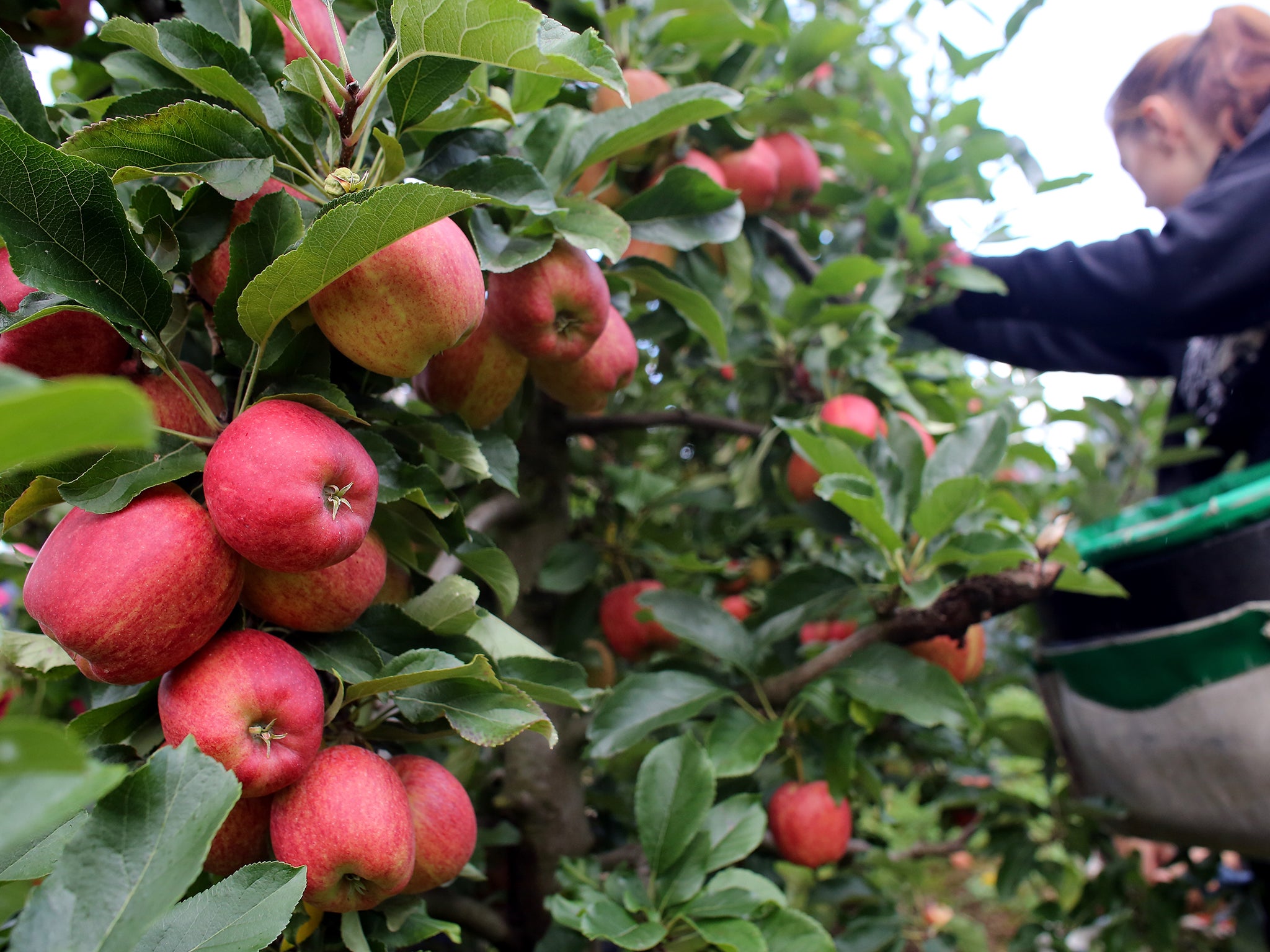Nepali fruit pickers ‘left in debt after being sent home from UK farms weeks early’
Workers spent thousands but were told to leave before they could earn it back, says report
Your support helps us to tell the story
From reproductive rights to climate change to Big Tech, The Independent is on the ground when the story is developing. Whether it's investigating the financials of Elon Musk's pro-Trump PAC or producing our latest documentary, 'The A Word', which shines a light on the American women fighting for reproductive rights, we know how important it is to parse out the facts from the messaging.
At such a critical moment in US history, we need reporters on the ground. Your donation allows us to keep sending journalists to speak to both sides of the story.
The Independent is trusted by Americans across the entire political spectrum. And unlike many other quality news outlets, we choose not to lock Americans out of our reporting and analysis with paywalls. We believe quality journalism should be available to everyone, paid for by those who can afford it.
Your support makes all the difference.Nepali fruit pickers working on British farms were reportedly sent home just weeks after arriving, leading some to complain they had been left in thousands of pounds of debt.
The UK’s seasonal worker scheme allows foreign recruits to work in the UK for up to six months of a year.
Launched in the midst of Brexit negotiations and concern for the farming industry’s work base after Britain ceased to take part in the EU’s freedom of movement, the scheme offers tens of thousands of temporary visas for annual harvests.
Workers who arrived on the scheme in September told The Observer they were offered six months work, only to be told after less than two months that they were no longer needed and should book flights home.
Some said they had quit jobs to come to the UK and had been left thousands of pounds in debt after borrowing money to cover their flights and fees to third-party job brokers. They risk being thrown further into debt when booking plane tickets.
Emails seen by the paper that were sent to workers ordered them to leave the farm in Kent they were based on or face being blacklisted from the industry.
“If you ignore this email and we receive no answer … we will have to cancel your visas and to blacklist you, unfortunately,” one email sent to a group of workers by labour agency AG Recruitment on 4 November reportedly said.
The Observer said it had spoken to 12 people who were told to return home early by AG Recruitment, one of four licensed operators on the seasonal worker scheme. As many as 60 Nepali workers were understood to have been affected, it was claimed.
One man, who send remittance payments to his children and wife in Nepal, said he had taken on debts of almost £5,000 and still had to pay back more than half. He fears the debt will take years to repay.

“I don’t think I’ll get my job back in Nepal … If I go back to Nepal in four or five years, I can clear the loan,” he said.
The report raises questions about the treatment of seasonal workers after Brexit, as the visa scheme saw a rapid expansion from pilot stage to full implementation.
The number of seasonal work visas issued by the Home Office each year has surged since their launch in 2019, from 2,500 in the first year to an estimated 40,000 in 2022, though this figure was set to be reduced to 30,000 next year.
Pressure has been building for reform of post-Brexit immigration rules, with the Confederation of British Industry on Monday urging the government to allow more foreign workers in to meet staff shortages.
Last week, Brexiteer boss of Next called for a different approach to “economically productive migration”.
The Home Office has been approached for comment.




Join our commenting forum
Join thought-provoking conversations, follow other Independent readers and see their replies
Comments